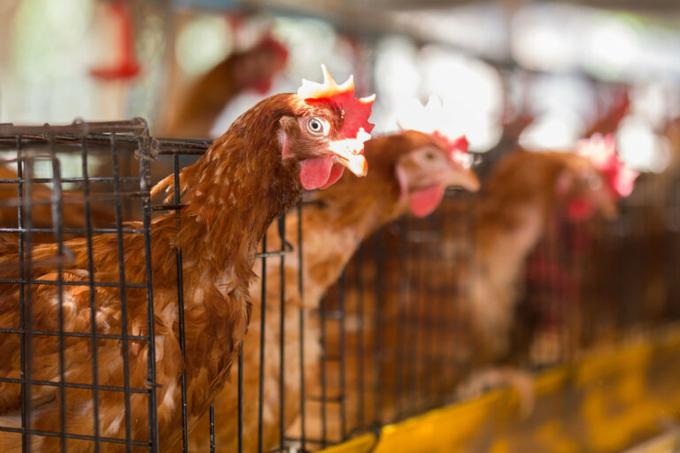November 28, 2025 | 03:49 GMT +7
November 28, 2025 | 03:49 GMT +7
Hotline: 0913.378.918
November 28, 2025 | 03:49 GMT +7
Hotline: 0913.378.918

"If a sufficient number of cage farms in Slovakia are not reconstructed by 2025, there is a real risk that eggs from Slovakia could be gradually replaced by foreign suppliers in international retail chains," says Daniel Molnár, director of the Poultry Union of Slovakia. Photo: Canva.
This case could be a indication of big problems for the entire poultry industry, which is braced for painful changes.
Hydina Slovensko has been grappling with financial woes in recent years. In 2022, it recorded a staggering net loss of €4 million, marking its worst performance to date. The company, which has been operating since 2009, has been in the red since 2019, a trend that has only worsened over time.
Local press reported that Hydina Slovensko’s problems could be partly attributed to the upcoming ban on the sale of eggs from cage farms, which is due to come into force in 2025.
Daniel Molnár, director of the Poultry Union of Slovakia, explained that big European retail chains notified their Slovak partners they would no longer accept eggs from cage farms from next year, though the existing veterinary laws mandate the ban on this production method neither in Slovakia nor at European level.
The Slovak poultry industry is in dire need of government support to the tune of €65 million. According to farmers, this financial injection is crucial for facilitating the transition to free-range production. However, the prospects of the appeal to allocate this money remain uncertain, and businesses are warning of a potential wave of bankruptcies in the coming months if funds for the transition are not secured.
“If a sufficient number of cage farms in Slovakia are not reconstructed by 2025, there is a real risk that eggs from Slovakia could be gradually replaced by foreign suppliers in international retail chains,” Molnár cautioned, highlighting the potential threat to the local industry.
Molnár also revealed that poultry breeders are extremely concerned over possible fraud in the labelling of eggs from other EU countries. He explained that, as far as the Slovak farmers are concerned, the transition towards free-range production is sluggish in other European countries, so it is not entirely clear how the new standards will be met.
The need to fund the transition comes at a time when Slovak poultry farmers are experiencing a lasting cost crisis. Molnár said that over the last 2 years, farmers saw their costs rising across the board, with electricity and gas costs going through the roof.
“In 2023, we also noticed a significant increase in the prices of packaging materials, an increase in fuel prices, as well as an increase in labour costs due to rising inflation,” he explained.
(Poultryworld)

(VAN) A new study reveals how the simultaneous effects of ocean acidification, salinity and loss of oxygen are making the world more fragile.

(VAN) Hopes are growing that the creation of the first 3D turkey gut model could be a turning point in the battle against the virulent blackhead disease.

(VAN) Tyson, America’s biggest meat supplier, plans to shutter one of its largest beef processing plants as the industry continues to struggle with low cattle supplies and political pressure from Washington.

(VAN) New FAO study shows how digital solutions are empowering farmers and fishers to prevent losses and build resilient agrifood systems.

(VAN) Brazil's COP30 presidency pushed through a compromise climate deal on Saturday that would boost finance for poor nations coping with global warming but that omitted any mention of the fossil fuels driving it.

(VAN) Poultry farmers in the UK have been warned that they could face one of the worst winters yet for bird flu.

(VAN) Prices of main-crop paddy have risen sharply, with jasmine rice hitting 16,100 baht per tonne — the highest level in years.